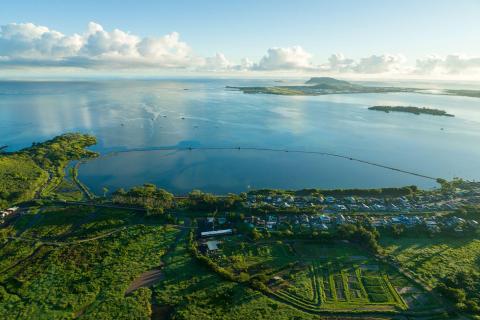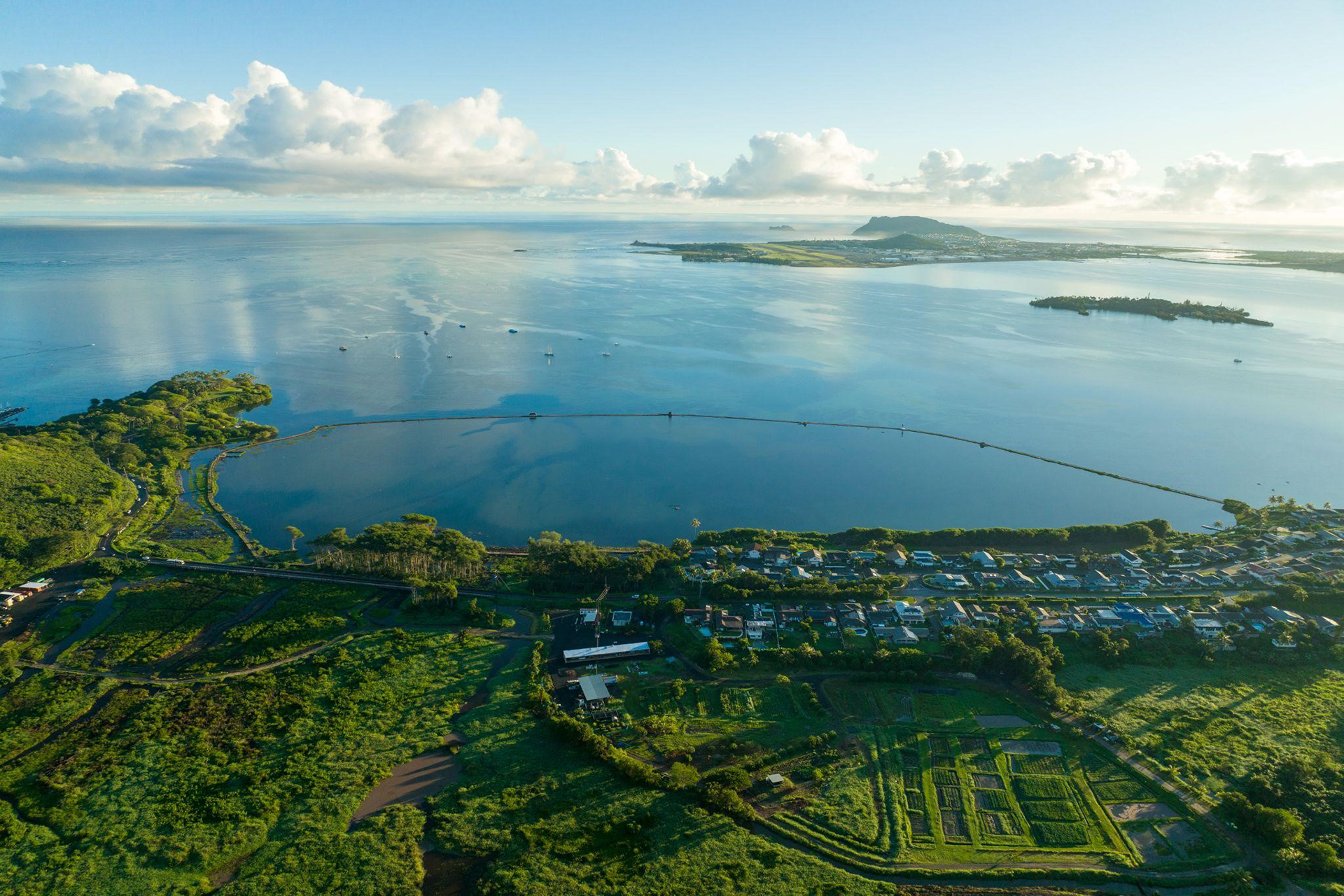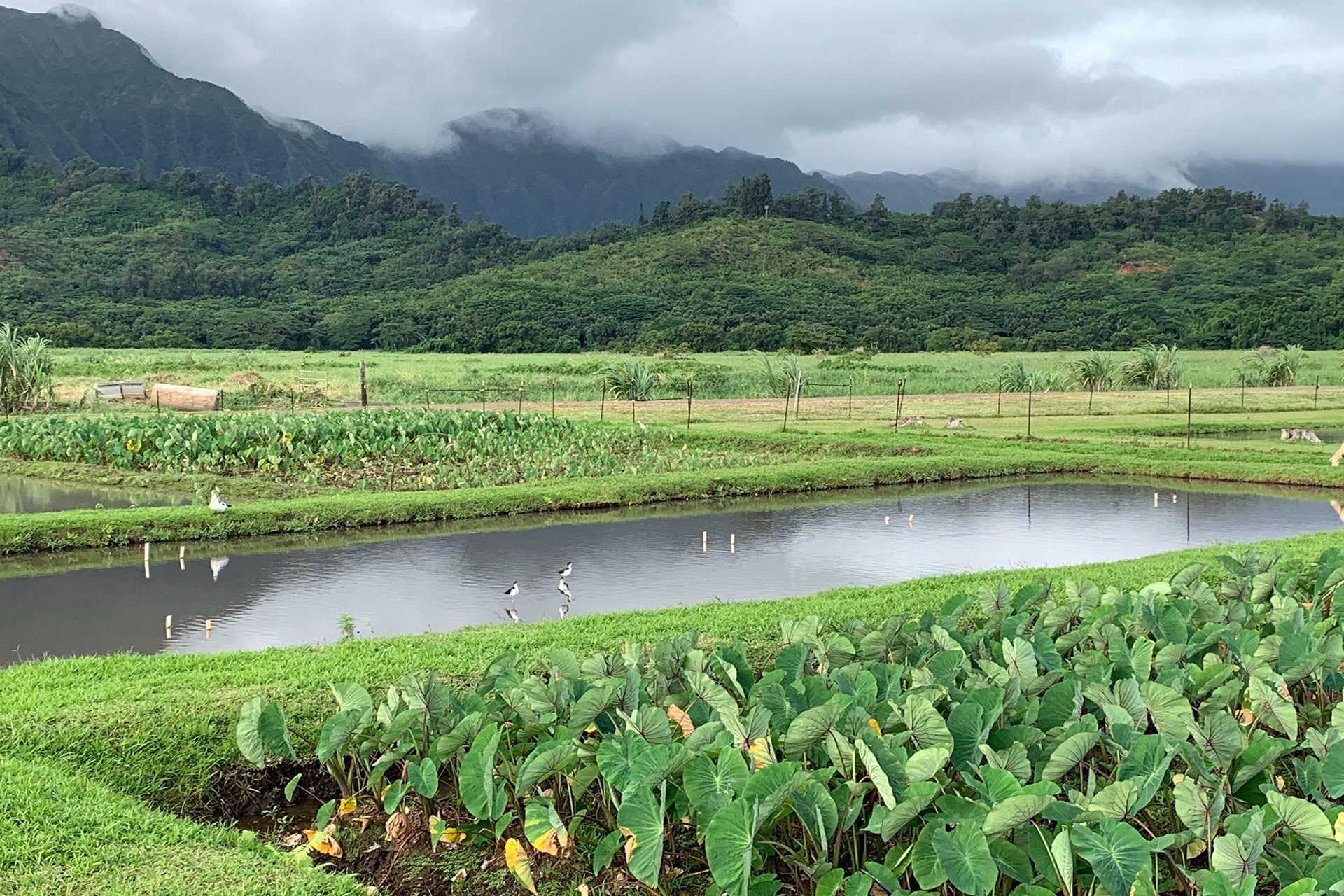
Using a reciprocal collaboration approach, this project engages with community partners for co-development of knowledge and products to better understand hydrological impacts on wetland and fishpond productivity and support Indigenous resource management strategies for biocultural restoration.
Wai (fresh water) is foundational in Indigenous resource management for retaining sediment, regulating water quality, and providing habitat for native species. Native Hawaiian communities hold wai and its life-giving power as sacred, sustainably managing water to establish food security on remote islands. However, a century of land use and socio-economic change in the He‘eia NERR has altered groundwater recharge, storage, and transport, and reduced surface flows. As community-based non-profit organizations engage in biocultural restoration, they have expressed the need to understand the current hydrology: how wai flows through the wetland and estuary and its potential influence on the Indigenous agroecology and aquaculture systems. This project addresses wai as a specific monitoring need, identified through community and stakeholder needs assessments and a 2021 workshop.
This project will examine spatial and seasonal variability in surface and groundwater flows and collect baseline data to better understand impacts of nutrient dynamics on overall wetland and fishpond productivity. With an eye toward potential climate change impacts, the team will consider how runoff from extreme rainfall events influence surface flow and groundwater recharge, as well as how saltwater inundation from more frequent king tides influence groundwater dynamics. To increase access to existing and new data streams for resource managers, the project will aggregate existing data streams through a web-based portal. The team will also design workshops to promote intergenerational transfer of ‘ike (knowledge) of water management and develop water science and management curriculum for existing educational programs.
Project team members Shimi Rii, Fred Reppun, and Casey Ching give a short introduction to "Wetland Water and ‘Ike (WAI): Improving Understanding of Hydrology to Inform Management Decisions."

